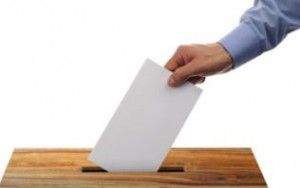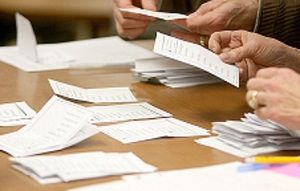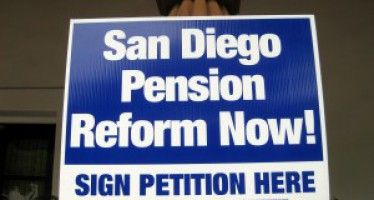Correa could benefit from his bill to accept late ballots

 Former state Sen. Lou Correa, D-Anaheim, is down but not out of the race for the Orange County Board of Supervisors.
Former state Sen. Lou Correa, D-Anaheim, is down but not out of the race for the Orange County Board of Supervisors.
If he ultimately prevails, he can thank a change in state law to accept late absentee ballots, a bill authored by — state Sen. Lou Correa.
With 100 percent of the precincts reporting, the Santa Ana Democrat is down by just two votes to Republican Andrew Do in the First District Supervisorial race. Orange County Registrar of Voters Neal Kelley estimates there are 6,105 late absentee, provisional and election day ballots left to count — more than enough to flip the result.
Correa also has another ace up his sleeve: those late absentee ballots not yet received by county election officials.
SB29: Correa bill to accept late ballots
For years, state law required that absentee ballots be in the hands of an official “no later than 8 p.m. on election day.” That has meant thousands of ballots that were postmarked on Election Day but delayed in the mail could not be counted.
Effective Jan. 1, 2015, a new state law, Senate Bill 29, took effect that expanded the window of time for receiving late absentee ballots. California became the 12th state to accept late absentee ballots after Election Day. That California bill was authored by Correa.
According to the State Senate’s floor analysis of the bill, the new requirements for a vote-by-mail (VBM) ballot to be considered “timely cast” are:
“If it is received by the voter’s elections official via the United States Postal Service (USPS) or a bona fide private mail delivery company no later than three days after election day and either of the following is satisfied:
“A. The ballot is postmarked or is time stamped or date stamped by a bona fide private mail delivery company on or
“before election day; or,
“B. If the ballot has no postmark, a postmark with no date, or an illegible postmark, the VBM ballot identification envelope is date stamped by the elections official upon receipt of the VBM ballot from the USPS or a bona fide private mail delivery company, and is signed and dated by the voter on or before Election Day.”
Although there was wide-ranging support for the first provision of the law, it’s the second provision, allowing ballots without a postmark, that concerned some state lawmakers and well-respected organizations.
No Postmark: Potential for Voter Fraud
Correa’s bill passed the Senate on a 21-11 vote and the Assembly on a 54-25 vote. Republican lawmakers in both houses echoed the concerns of the Howard Jarvis Taxpayers Association that the bill would increase the chances for voter fraud.
 “We sympathize with the author’s desire to ensure that voters are not disenfranchised,” the HJTA wrote in opposition to the bill. “It is over this latter provision that we must oppose the bill. … For instance, a ballot without a postmark leads one to question its legitimacy. How do election officials know it wasn’t filled out after the election?”
“We sympathize with the author’s desire to ensure that voters are not disenfranchised,” the HJTA wrote in opposition to the bill. “It is over this latter provision that we must oppose the bill. … For instance, a ballot without a postmark leads one to question its legitimacy. How do election officials know it wasn’t filled out after the election?”
Despite that serious question, Gov. Jerry Brown signed Correa’s bill into law on Sept. 26.
Growing Number of Late Ballots
Correa’s bill was inspired by a 2010 incident in Riverside County, where 12,563 absentee ballots were discovered at a local post office after Election Day. At first, the ballots were disqualified. A judge later ordered the ballots be counted.
The change in the law was supported by the California Teachers Association, California Common Cause and California Forward. According to California Forward, “68,000, or 1 percent of all ballots cast by mail in California went uncounted in 2012.”
Kim Alexander, president of the California Voter Foundation, has previously said late absentee ballots are “the number one reason for ballot rejections.” According to the group’s analysis of Orange County’s absentee ballots from the November 2012 general election, 3,362, or 0.6 percent, were not counted in that election. Of those disqualified ballots, 65 percent were due to being too late to count.
A 2012 analysis by Political Data Inc., the state’s leading voting and elections data firm, estimated “that 30,000-plus voters statewide had their ballots invalidated because they were received too late to be counted. Nearly half of these voters were under 30 years old, 14 percent were Asian-American and 17 percent were Latino.”
2007 Special Election Redux
The close special election is the redux of a 2007 special election for the same seat. Eight years ago, Janet Nguyen defeated Trung Nguyen by just seven votes after lawsuits and a recount. According to the Orange County Register, “Janet Nguyen was up by 52 votes on Election Night, Trung Nguyen, 49, was declared the leader by seven votes after late ballots were counted.”
The 2015 race even featured a connected cast of characters. Do, who holds a slim two-vote lead in 2015, served as Janet Nguyen’s chief of staff at the county.
He modeled his campaign on her recent victory to state Senate and even hosted his election-night party at her favorite election-night hangout, Azteca Mexican Restaurant in Garden Grove.
After being termed out as a supervisor, last November Janet Nguyen easily won a seat in the state Senate — ironically taking Correa’s seat.
Related Articles
Desalination gaining support as long-term response to CA drought
With California’s snowpack at the lowest level in a century, Governor Jerry Brown announced Wednesday the first mandatory water reductions in state
DeMaio, Reed team up for 2016 pension fight
The dynamic duo of California pension reform are teaming up in 2016. Former San Diego City Councilman Carl DeMaio and
L.A. mayor Eric Garcetti announces he won’t run for California governor
Los Angeles mayor Eric Garcetti announced on Sunday night that he will not enter the California governor’s race, posting on Twitter that




